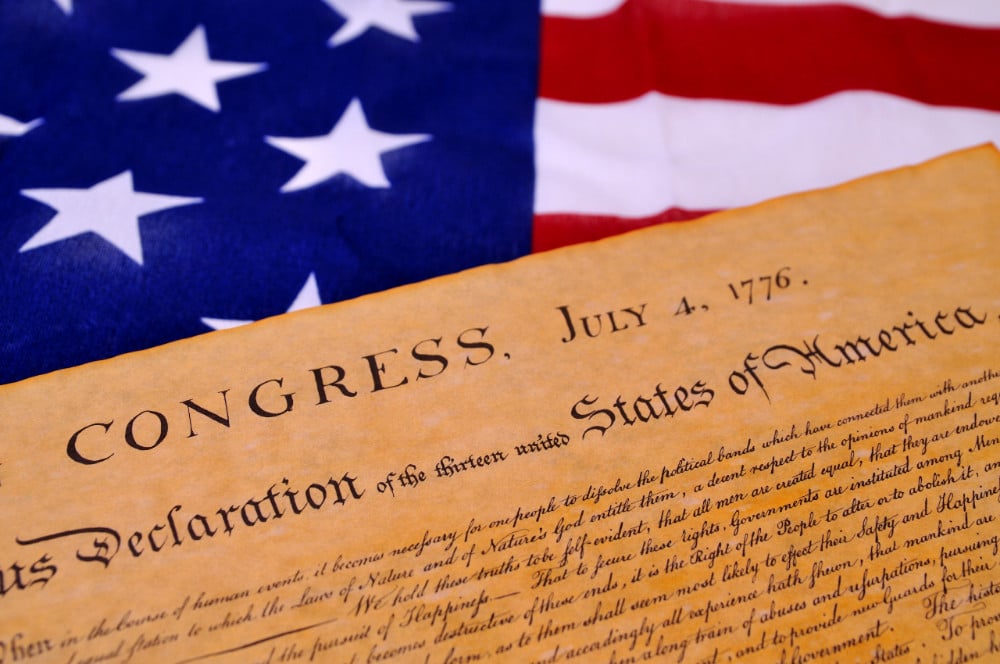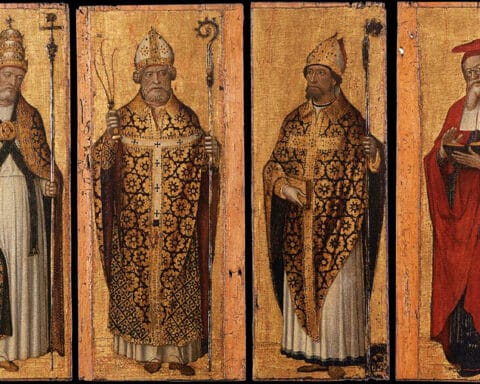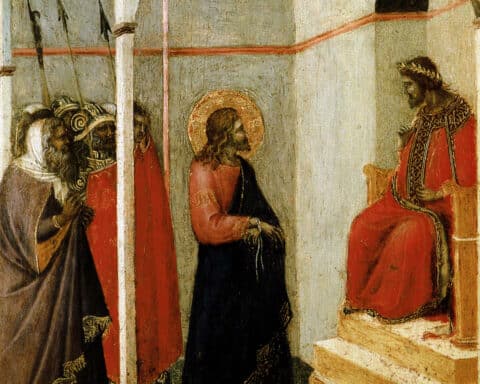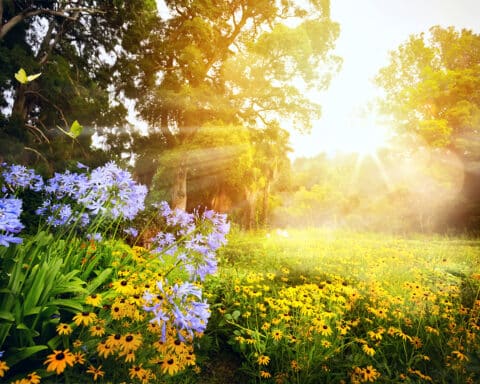“When in the course of human events, it becomes necessary for one people to dissolve the political bands which have connected them with another, and to assume among the powers of the earth, the separate and equal station to which the laws of nature and of nature’s God entitle them, a decent respect to the opinions of mankind requires that they should declare the causes which impel them to the separation. We hold these truths to be self-evident, that all men are created equal, that they are endowed by their Creator with certain unalienable rights, that among these are life, liberty and the pursuit of happiness.”
These familiar and powerful words comprise the opening sentences of the Declaration of Independence, which was ratified 246 years ago and signaled to the world that the 13 colonies once under British control were liberated and unified.
To the careful reader — then and now — they say so much more.
That our true freedom is given to us by God himself wasn’t something Thomas Jefferson pulled out of the sky. Far from it. Christ was clear on the matter: “If you remain in my word, you will truly be my disciples, and you will know the truth, and the truth will set you free” (Jn 8:31-32). Jefferson and his contemporaries understood well that there are universal truths found in natural law, that now and forever will remain “self-evident.”
But while the celebration of the Declaration of Independence has not waned in nearly 250 years, our culture’s understanding and acceptance of truth seems to have cratered. To many today, truth is a concept that varies depending on one’s individual feelings and circumstances — from the understanding of what marriage is and can be, to the biological science of sex and gender. Pope Francis called this insistence to define our own truths “the spiritual poverty of our time.” His predecessor, Pope Benedict XVI, said, “The evangelization of culture is all the more important in our times, when a ‘dictatorship of relativism’ threatens to obscure the unchanging truth about man’s nature, his destiny and his ultimate good.”
So what does this have to do with freedom? In a word: everything.
During his 1995 visit to the United States, Pope St. John Paul II spoke at a Eucharistic celebration at Camden Yards in Baltimore. A generation later, his words are even more prescient: “America has always wanted to be a land of the free,” he said. “Today, the challenge facing America is to find freedom’s fulfillment in the truth: the truth that is intrinsic to human life created in God’s image and likeness, the truth that is written on the human heart, the truth that can be known by reason and can therefore form the basis of a profound and universal dialogue among people about the direction they must give to their lives and their activities.
“Democracy cannot be sustained without a shared commitment to certain moral truths about the human person and human community. The basic question before a democratic society is: How ought we to live together? In seeking an answer to this question, can society exclude moral truth and moral reasoning? Can the biblical wisdom which played such a formative part in the very founding of your country be excluded from that debate?
“Would not doing so mean that America’s founding documents no longer have any defining content, but are only the formal dressing of changing opinion? Would not doing so mean that tens of millions of Americans could no longer offer the contribution of their deepest convictions to the formation of public policy? Surely it is important for America that the moral truths which make freedom possible should be passed on to each new generation. Every generation of Americans needs to know that freedom consists not in doing what we like, but in having the right to do what we ought.”
On this Fourth of July, let us remember that our freedom was not won — nor can it be lost — by muskets or mortars, nor is it expressed most deeply by lighting up the sky with the brilliant colors of fireworks or by patriotic flag-waving. Those things have their place. Instead, let us celebrate by giving thanks to Almighty God and recall the words of St. Paul: “For freedom Christ set us free; so stand firm and do not submit again to the yoke of slavery” (Gal 5:1).
Our Sunday Visitor Editorial Board: Gretchen R. Crowe, Scott P. Richert, Scott Warden, York Young





